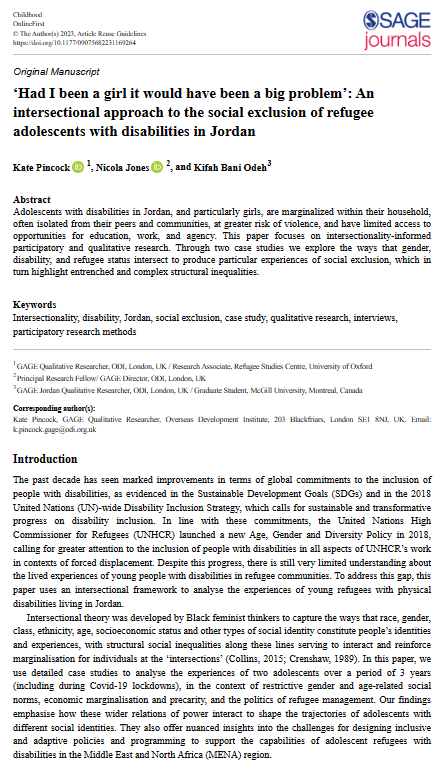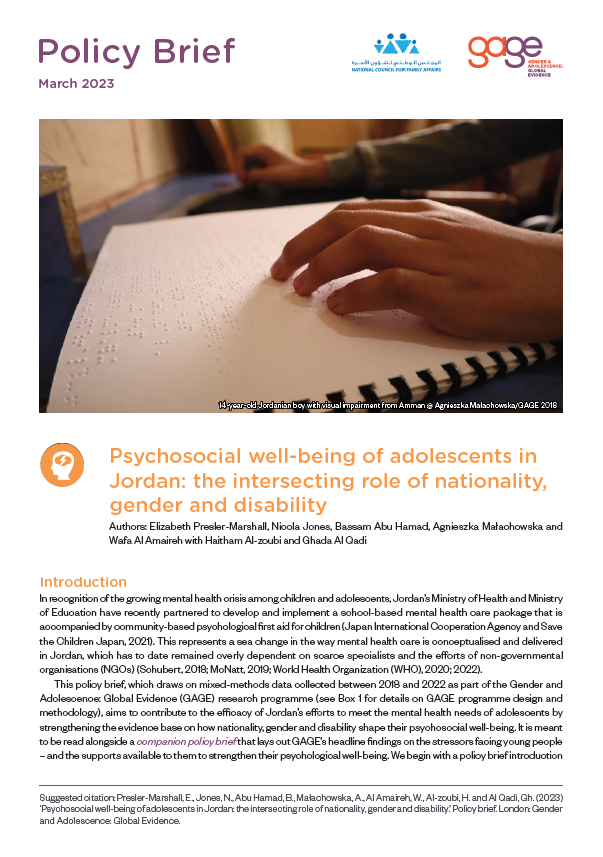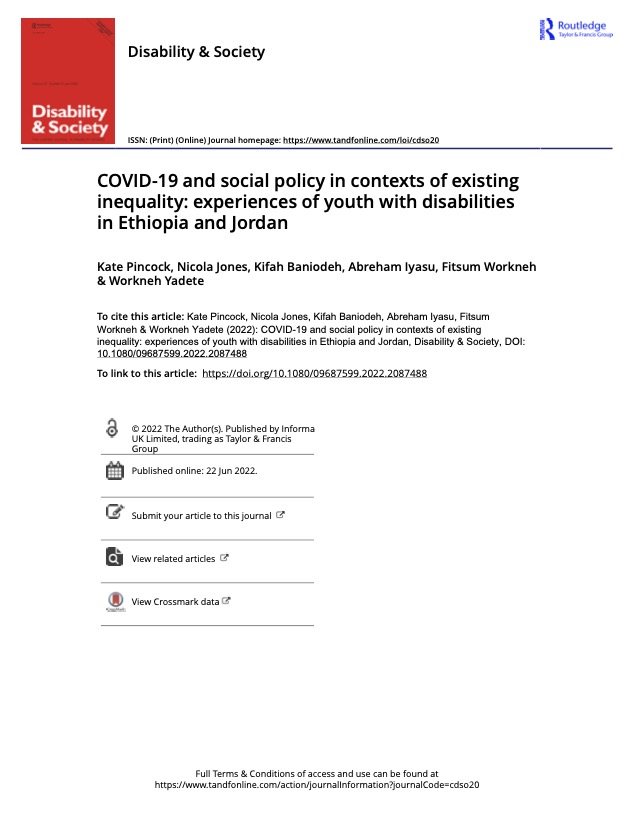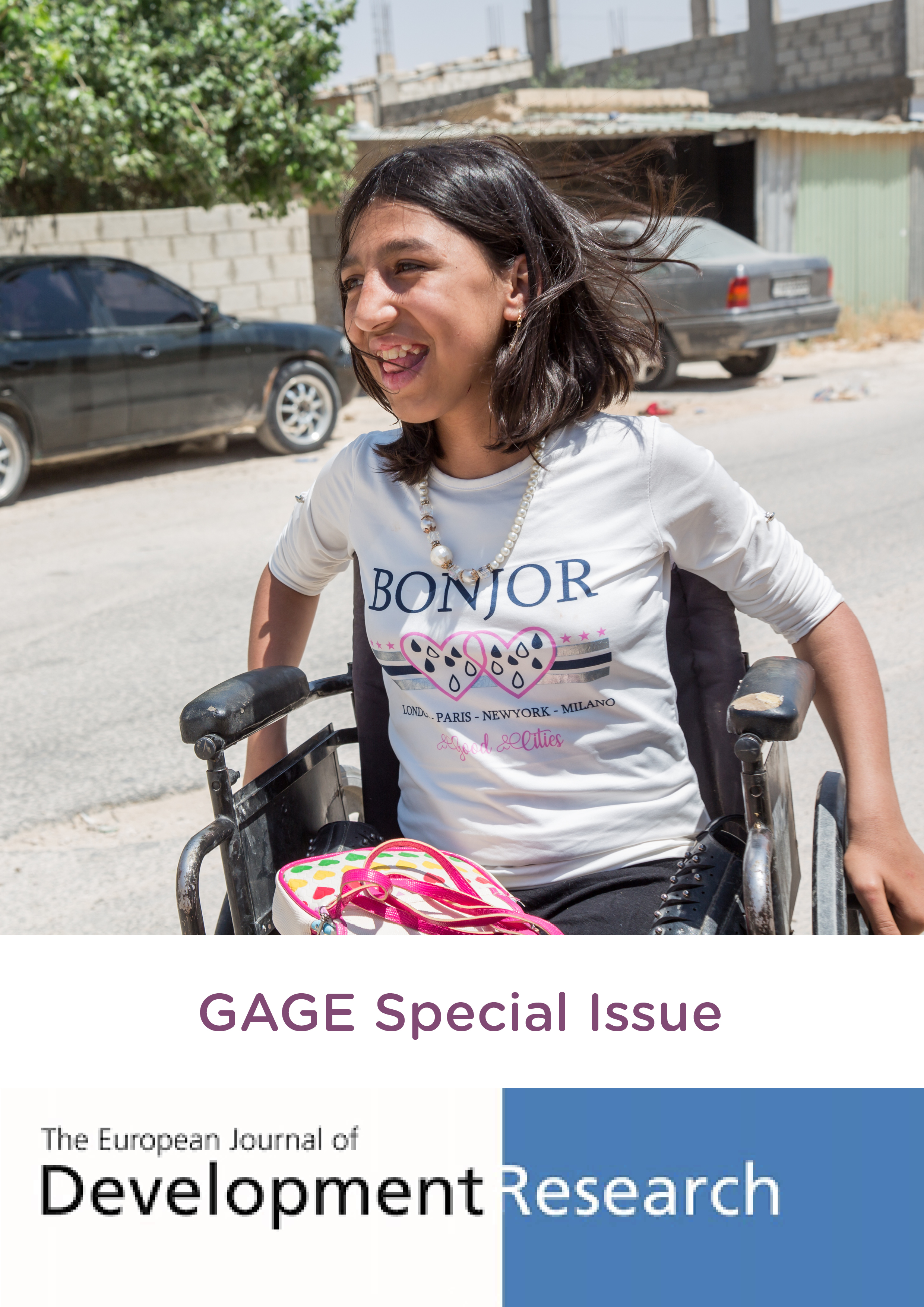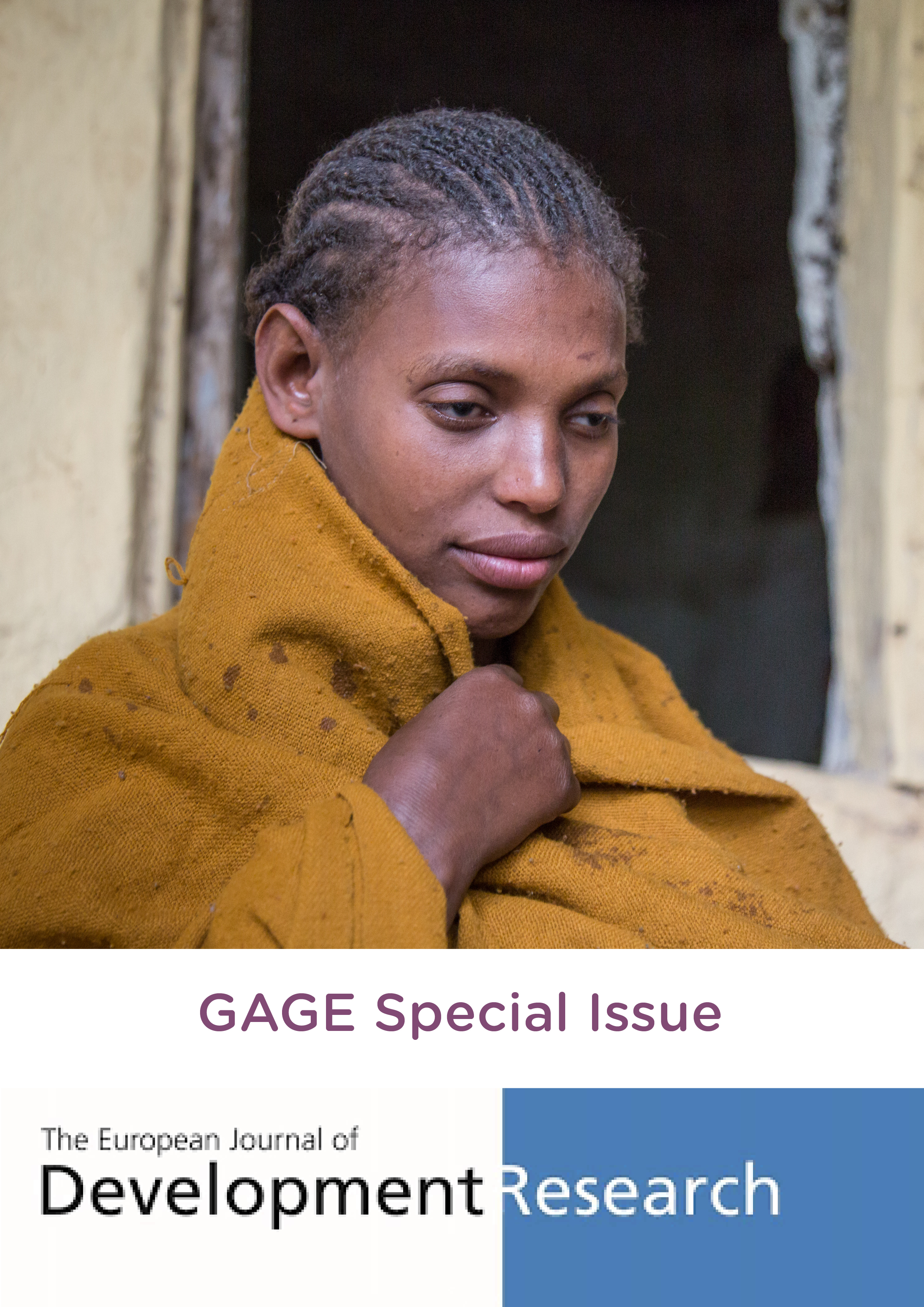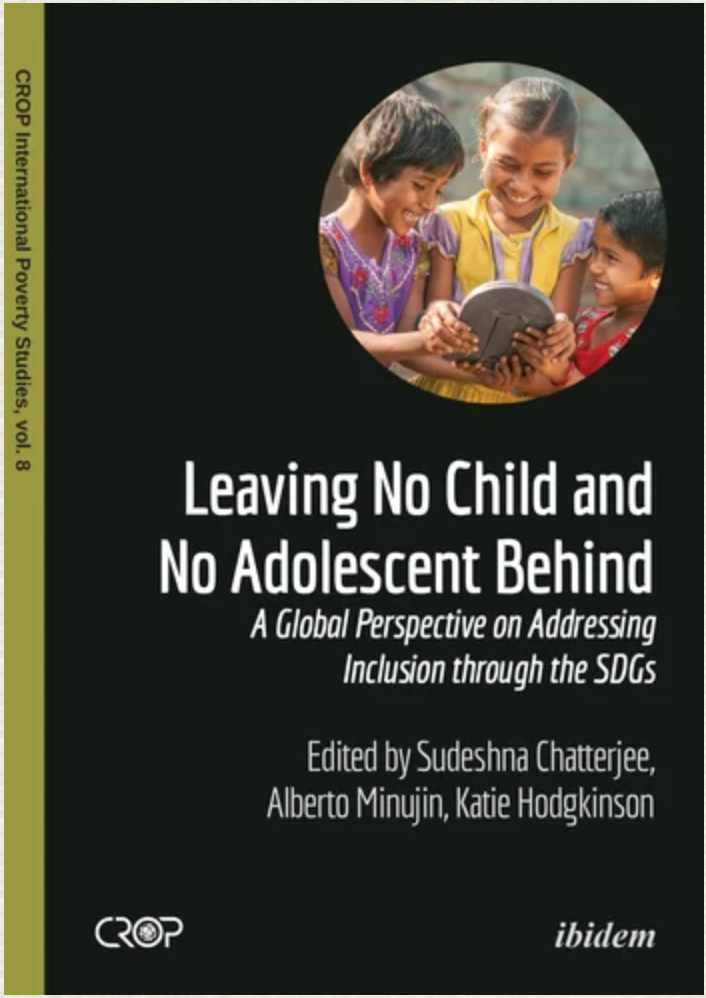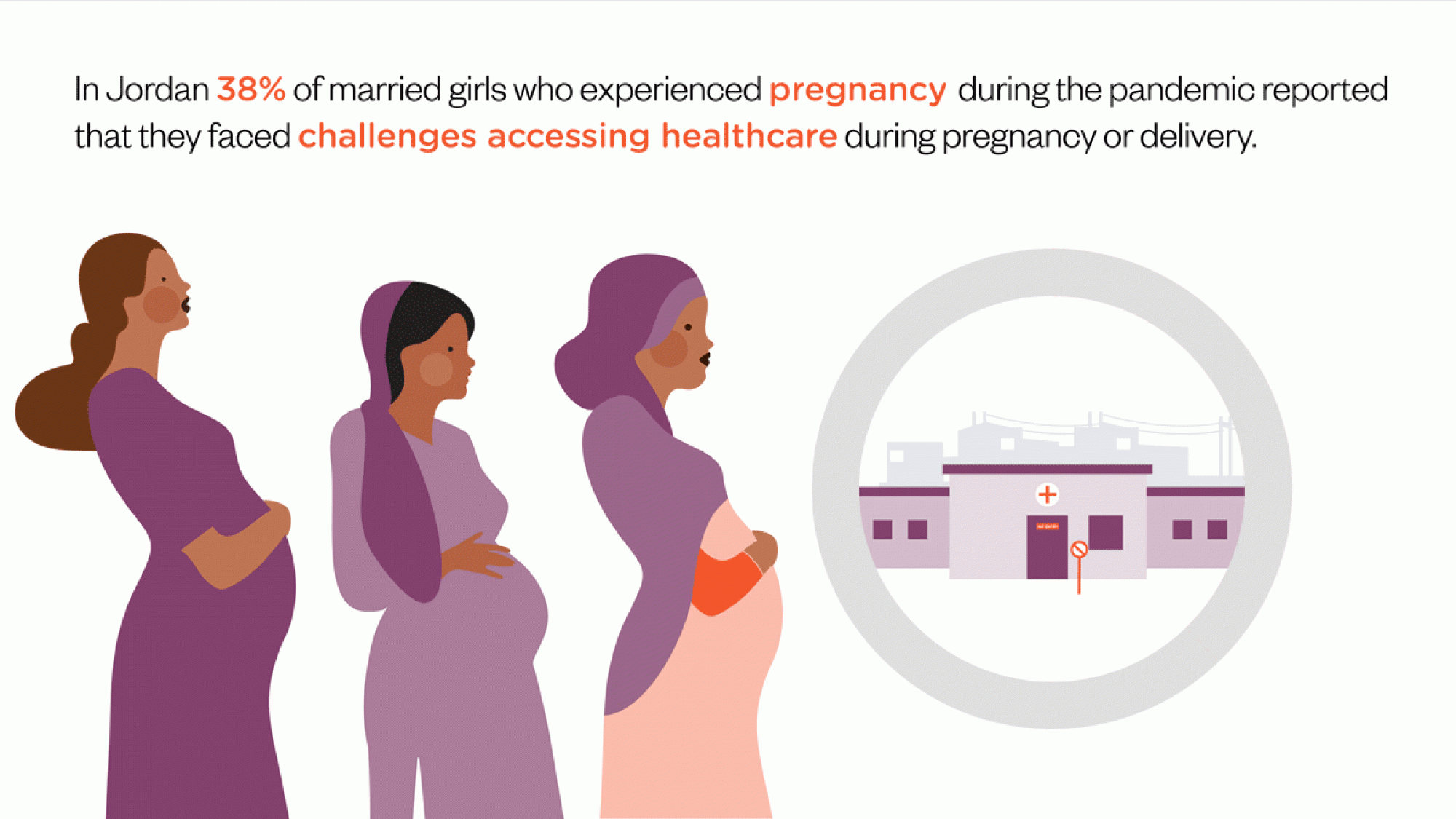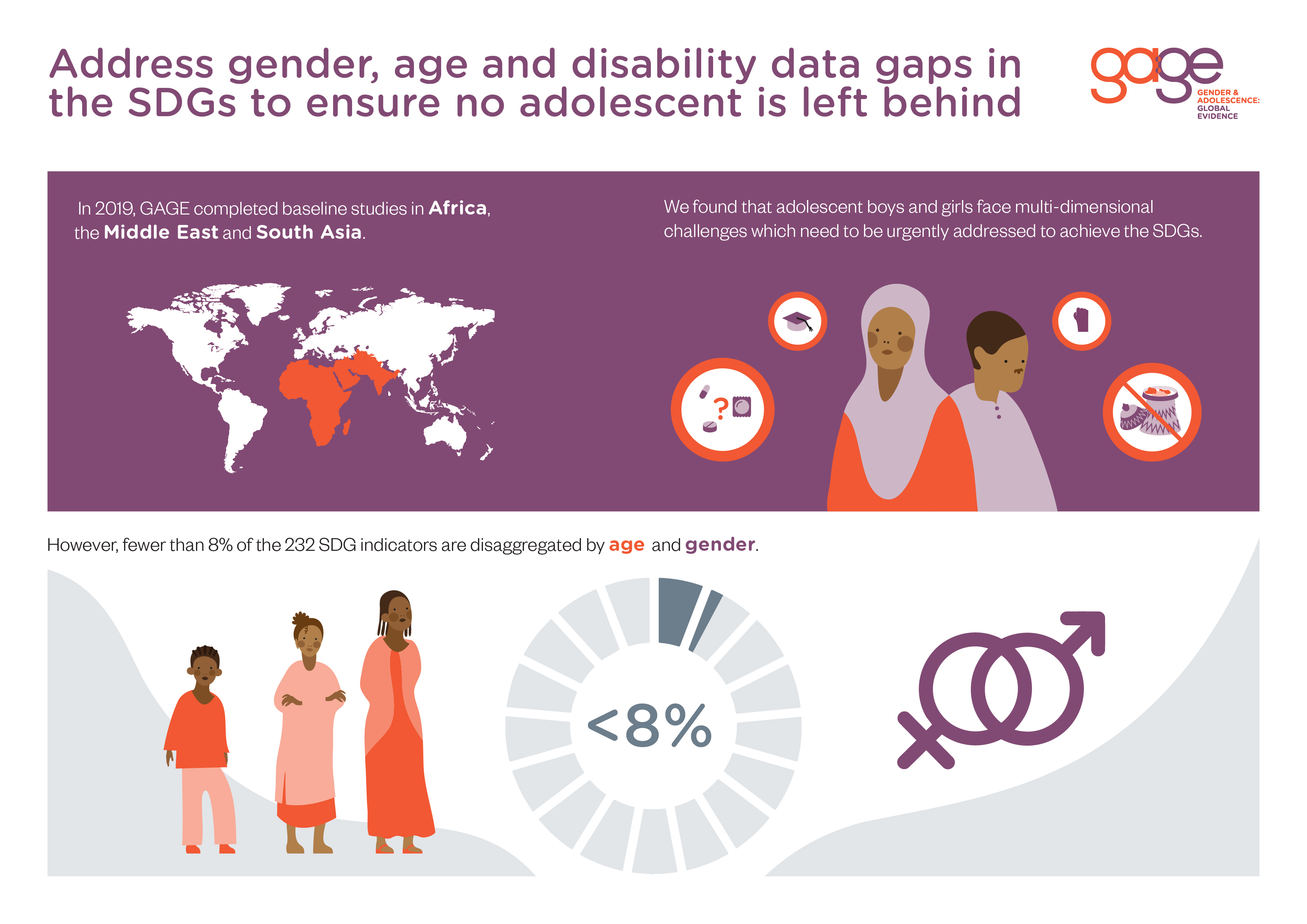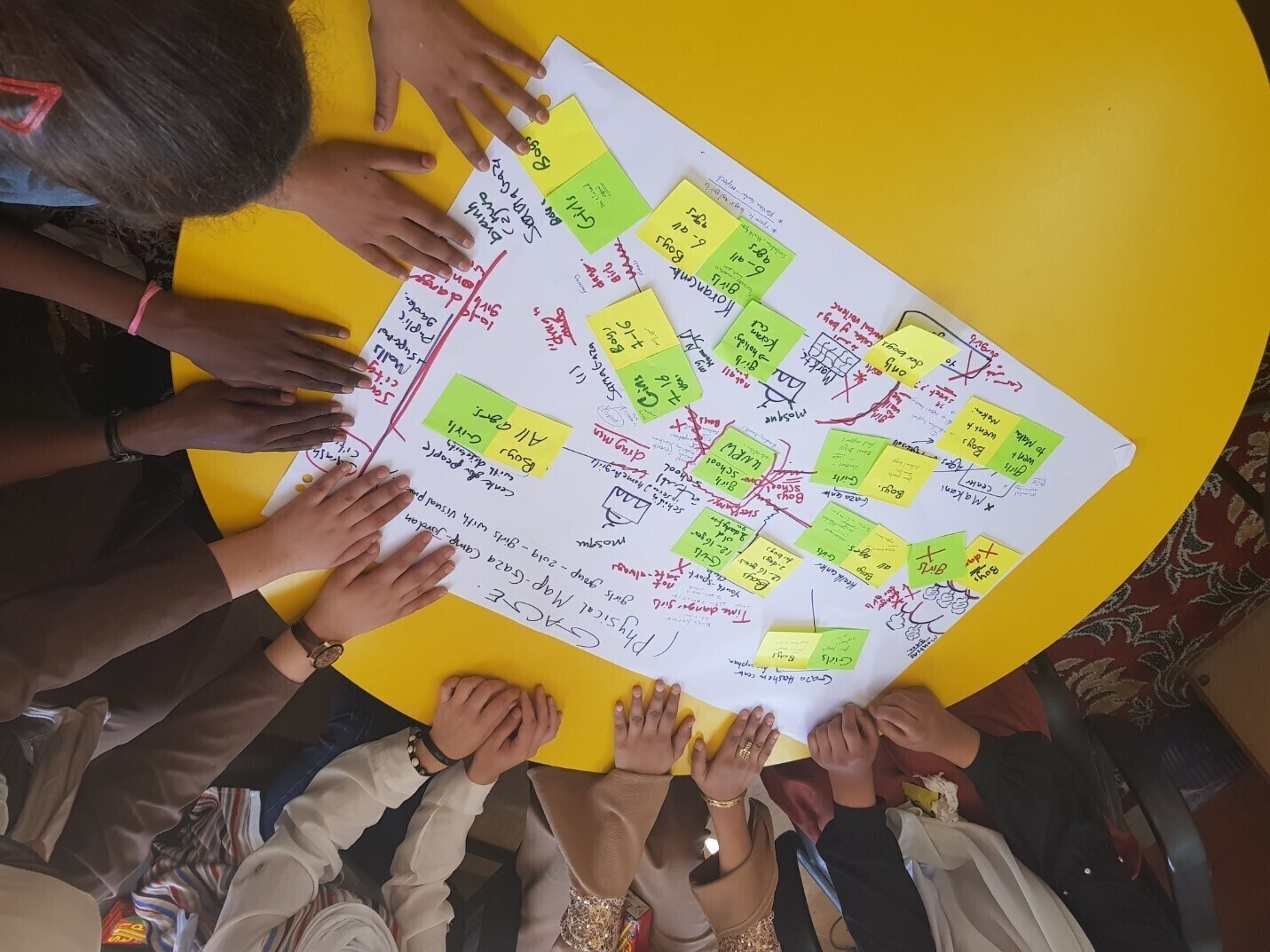

Adolescents with disabilities
By exploring how sex, age and disability intersect with other social identities in different contexts, GAGE research explores the unique needs of adolescent girls and boys with disabilities, and looks at how services can best respond to those needs.
Many adolescents with disabilities in low- and middle-income countries and humanitarian contexts remain excluded from education, risk social isolation, face barriers in receiving health care, and are excluded from skills-building and employment opportunities.
GAGE findings identify key areas for context-specific interventions while tackling gaps in disability data, policy focus and funding.

